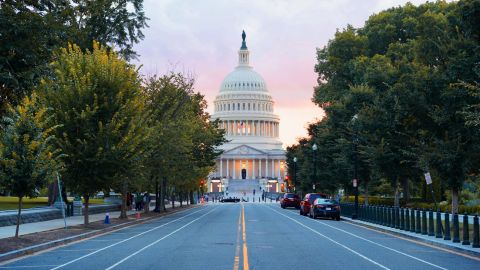ASBMB recommends boost to NIH base budget
The American Society for Biochemistry and Molecular Biology submitted written testimony to a U.S. House subcommittee late last month in which it recommended a base budget of $49.05 billion for the National Institutes of Health, $3.25 billion for National Institute of General Medical Sciences and $430.5 million for a program supporting states with historically low levels of federal research funding.
The testimony — submitted to the House Appropriations Committee’s Subcommittee on Labor, Health and Human Services, and Education on May 27 — both explained and made the case for curiosity-driven research.
“Solutions, treatments, therapies and cures are built on the foundational discoveries of basic scientific researchers. In addition, investment in basic scientific research drives long-term economic growth, induces a knowledge spillover effect, increases productivity and encourages more public–private collaboration,” the society wrote.
The ASBMB’s recommendation of $49.05 billion as a topline appropriation for the NIH would represent an increase of almost 8% over fiscal year 2022. In comparison, President Joe Biden’s proposed budget would increase NIH’s base budget by a mere $275 million.
“While we recognize that Congress has allocated a significant amount of emergency funding to the NIH to combat COVID-19, those supplements do not replace consistent, sustained year-over appropriations for the agency. We cannot be of a one-track mind here. We must continue to combat other serious diseases and public health threats as well,” the testimony said.
The society also explained that the NIGMS provides many training programs that help build a talented, diverse STEM workforce. The $3.25 billion that ASBMB recommended would represent a 5% increase. In light of inflation, the agency would have almost the same spending power as it did in FY22.
Finally, the society made the case for protecting the NIH Institutional Development Award (IDeA) program, which builds research capacity in states that have historically had low levels of NIH funding.
“The program has significantly broadened the geographic distribution of NIH funds for almost three decades,” ASBMB wrote, pointing to two particular awards that have been vital to establishing fundamental research excellence throughout the nation.
First is the Centers of Biomedical Research Excellence award, known as COBRE. It funds outstanding investigators and research facilities in the 23 states where the aggregate success rate for NIH applications historically has been low.
The second is the IDeA Networks of Biomedical Research Excellence program, known as INBRE, which funds research by undergraduates in the 23 states noted above. The ASBMB pointed to the Rhode Island INBRE as a success story.
“Rhode Island investigators turned 10 years of INBRE support into 21 awards from NIH and 28 awards from NSF and other funding agencies,” the testimony said. “Notably, the Rhode Island INBRE has trained more than 1,500 undergraduates — and 75% of those participants are now pursuing graduate degrees in biomedical fields or working in biomedical careers.”
Enjoy reading ASBMB Today?
Become a member to receive the print edition four times a year and the digital edition monthly.
Learn moreGet the latest from ASBMB Today
Enter your email address, and we’ll send you a weekly email with recent articles, interviews and more.
Latest in Policy
Policy highlights or most popular articles

Building a stronger future for research funding
Hear from Eric Gascho of the Coalition for Health Funding about federal public health investments, the value of collaboration and how scientists can help shape the future of research funding.

Councilors advocate for science on Capitol Hill
ASBMB Councilors meet with their elected officials to advocate for basic scientific research funding and training the next generation of scientists.

Hope for a cure hangs on research
Amid drastic proposed cuts to biomedical research, rare disease families like Hailey Adkisson’s fight for survival and hope. Without funding, science can’t “catch up” to help the patients who need it most.

Supporting science through advocacy and community building
ASBMB calls on scientists to take action as funding cuts and policy shifts threaten the U.S. research enterprise, emphasizing the power of community advocacy and persistence in protecting the future of science.

Seven steps to advocating in your home state
Find out how to schedule, prepare for and conduct a productive district office meeting to communicate the importance of fundamental scientific research funding to your representatives.

ASBMB members call for funding and agency support amidst uncertainty
In 60 meetings on Capitol Hill, scientists urge legislators to reaffirm support for scientific innovation

